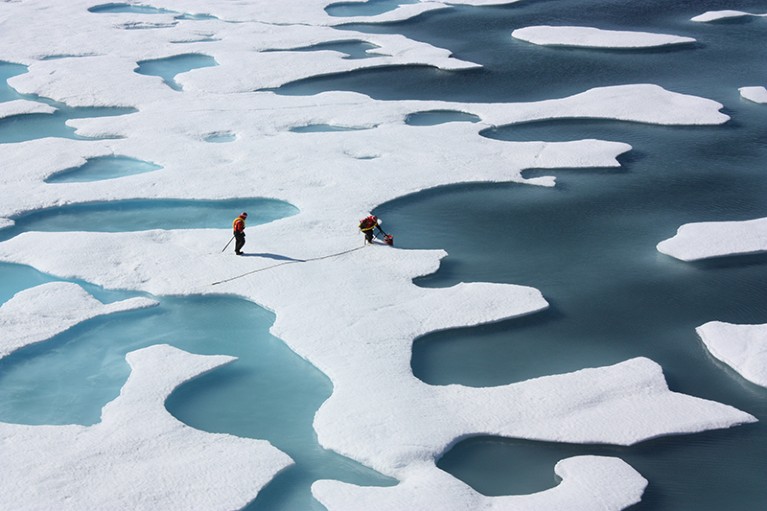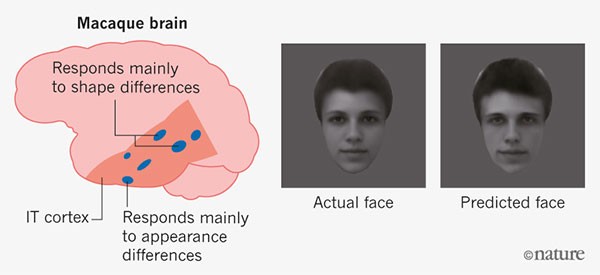Hello Nature readers, this is the news that matters in science today. You can also sign up to get it free in your inbox.

Most of the sea ice that forms in the Arctic is thinner than it's been in decades.Credit: Kathryn Hansen/NASA
Record warmth transforms the Arctic
Five years of record warmth have intensified the transformation of the Arctic.
• Sea ice is the thinnest it's been at any time in the past 30 years.
• Less than 1% of sea ice has lasted for more than four summers without melting.
• Wild reindeer and caribou populations have declined by more than 50% since the 1990s.
• Harmful algal blooms are seven times more prevalent off the Alaskan coast than they were 40 years ago.
• The Arctic Ocean now contains the highest concentration of microplastics of any ocean basin in the world.
Reference: Arctic Report Card 2018
Baby gene edits could affect a range of traits
Two weeks ago, geneticist He Jiankui made the shocking claim that he helped to make the first gene-edited babies: twins with one or both of their CCR5 genes disabled to protect them against future HIV infection. If true, the loss of CCR5 function might affect the children's health in other unpredictable ways. CCR5 seems to have a protective role in several illnesses, including West Nile virus, influenza and multiple sclerosis. And there is some evidence that deleting the gene improved mice’s ability to learn — but its effect on human cognition is unknown.
Read more: Six unanswered questions about the first CRISPR babies
Trump will target clean-water rules
The administration of US President Donald Trump will propose stripping environmental protections for some streams and wetlands, reports The New York Times. The change would permit more pesticide runoff and other pollutants to be released from private land, such as farms and golf courses.
The New York Times | 8 min read
What are the chances for Her Majesty’s satnav?
One snarl in the United Kingdom’s ongoing Brexit omnishambles is the country’s continuing involvement in Galileo, the European Union’s global satellite-navigation system. Questions about how much Britain will control and benefit from the system that it helped build remain unanswered, leading some optimists to suggest that the country could launch its own system. Nature digs into the dispute.
FEATURES & OPINION

Specific brain cells respond to face shape — such as the width of the mouth — and other cells respond to appearance features such as skin colour. Researchers could predict the features of a face that a monkey had seen by looking at the activity of just 205 neurons.(Photos: Steven Le Chang and Doris Tsao)
The neural code for everything we see
Neuroscientist Doris Tsao cracked the “thrillingly simple” code that the brain uses to recognize faces. Next, she will probe deeper into the brain in search of how it creates a complete, coherent model of the world.
Why you should welcome undergraduates in your lab
Undergraduates might require a lot of hand-holding when they join a lab, but the benefits they bring outweigh the inconvenience, argues laboratory manager Benjamin Tsang. Not only are they keen, but teaching them will also make you a better leader and mentor.
Wanted: a fair carbon tax
The ‘Yellow Vest’ protests in France against a rise in fuel prices highlights how the necessary transition to a clean economy must be carefully managed, argues a Nature editorial. Smart climate policies should look to carbon taxes that use rebates to soften the blow for people with less income.
